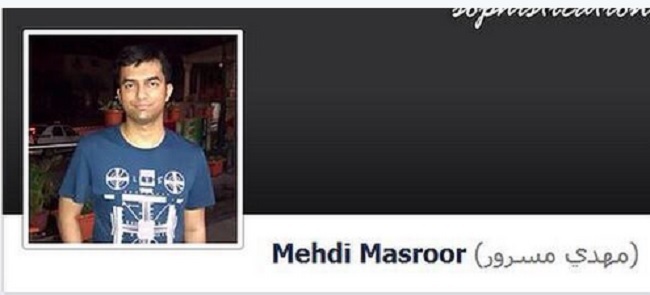While ISIS' Twitter 'Jihadi' Shami Witness, who goes by the name of Mehdi Masroor Biswas in real life, thinks that the Indian police have no legal grounds to arrest him, reports claim that Mehdi could even face life imprisonment under the country's cyber terrorism law.
Shami Witness until Thursday was the alter ego of an ISIS' Twitter jihadi, who ran one of the most influential accounts for the terror group. But after Channel 4 caught up with the Bangalore-based Twitter jihadi, who decided to stay back in India to make a living for his family instead of going to Syria, reports paint Mehdi Masroor Biswas as a man who is scared and too paranoid.
As Shami Witness on Twitter, Mehdi was a man who encouraged the jihadis in Kobane to 'give up their lives for Allah', but after reports exposed details of his 'online' involvement with ISIS, he has now alleged that the Indian police may try to 'kill' him.
In his most recent interview, Mehdi, who hails from West Bengal, told Simon Israel of Channel 4: "I have a suspicion that when the police, when they come to arrest to me, they might try to kill me then they would say I tried to attack them."
The Bangalore police has already taken up an investigation on Mehdi in coordination with the National Investigation Agency (NIA) and the Twitter jihadi reportedly has said that he would not resist arrest.
However, Mehdi believes that he has done nothing wrong for which the police should arrest him. "I haven't done anything wrong. I haven't harmed anybody, I haven't broken any laws of the country. I haven't raised any war or any violence against the public of India," he said.
Mehdi in fact believes that he has broken no laws in India, as according to him he 'just said stuff.' However, the Indian police officials probing the case say that they have a solid legal ground to arrest him.
A senior police officer, who is part of the probe told The Hindu that once he is arrested he will be charged under Section 66F of Information Technology Act, 2000 for 'cyber terrorism'.
Section 66-F (B) specifically deals with crimes where a person knowingly accesses a computer resource that "may be used to cause or likely to cause injury to the interests of the sovereignty and integrity of India, the security of the State, friendly relations with foreign States, public order, decency or morality, or in relation to contempt of court, defamation or incitement to an offence, or to the advantage of any foreign nation, group of individuals or otherwise."
Under the law, a person convicted for cyber terrorism is punishable even with life imprisonment.
The officer added that a review of the tweets posted by @ShamiWitness clearly show that he was in touch with many ISIS fighters on the frontline.
Twitter account Shami Witness, which was deleted by Mehdi after he was exposed, had amassed 17,700 followers and the tweets were seen two million times each month.
Hailed as the most influential ISIS Twitter jihadi, @shamiwitness was keenly followed by thousands of ISIS supporters and terrorism experts. He reportedly tweeted the video of the brutal execution of US aid worker Peter Kassig and dozens of Syrians within minutes of it being uploaded to the internet.
















